Why activity trackers deliver mismatched fitness data
- Published
- comments
Fitness trackers can monitor our activity 24/7 but how accurate are the devices?
Filled with goodwill, unfathomable optimism and a slightly heavy heart, you embark on a health kick.
With all the walking, running, cycling and gym activity you intend to do, obviously you need an activity tracker -a small, trusty device that you can wear 24/7 to monitor every footstep, every mile clocked up, every calorie burned, and even the quality of every moment's shuteye.
You'll believe what it says. I mean, why wouldn't you?
Millions of these things have been sold, and you're not exactly going to buy multiple devices to check they come up with the same results.
And that's why I felt compelled to carry out this experiment for you.
I've spent a full week wearing four of the latest and best-known trackers to see if they all came up with the same results.
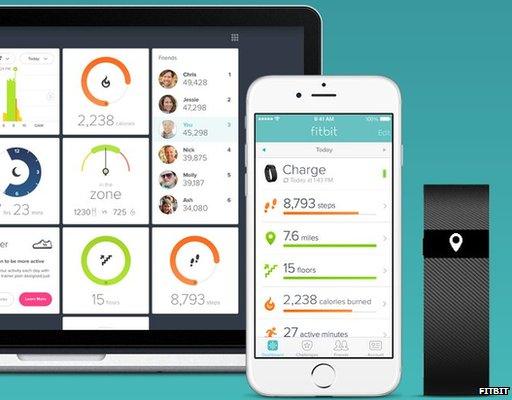
For £40 a year, owners of the Fitbit Charge can get a more detailed analysis
My findings? They don't. This isn't about which device presents your text messages to you, or comes in three shades of pink, but about cold, hard data.
The Garmin Vivosmart, Fitbit Charge, Misfit Shine and Jawbone Up Move are all in the dock.
At their worst, one day saw a variation between them of 23% in distance covered, and over the course of a week a difference in opinion between the Fitbit Charge and Jawbone Up Move of 2,649 calories burned - that's more than an entire day's calorie intake for someone of my build.
Both companies are united in saying that it's not the figures that matter, but the pattern.
Managing director of Fitbit Europe Gareth Jones advises people to simply be aware of the trend.
"Rather than get down to the half step or the next calorie is to look at the trend in their step pattern," he says,
"Are they increasing the number of steps in their day all week? Are they increasing the calorie burn day to day, week to week? Because it's that trend that's going to make you healthier."

The budget-priced Jawbone Move Up - release of the more advanced Up3 wristband has been delayed
Heart rate monitoring
It's a sentiment echoed by Jawbone's head of international partner and product development, Jorgen Nordin.
"What's important really is that our system is all about getting better, becoming a better version of yourself," he says.
And maybe there is something in that.
Goodwill, good intention, motivation to improve your lifestyle and upping your own activity may become so enshrined in this new active tracked you that you transform your entire being.
Yet rely too much on the tech, inviting in third-party apps, inputting what you've eaten, and taking the figures as gospel, and you may just find it all going the wrong way.
But, surely buying a device is buying into the idea that precise data matters to you?
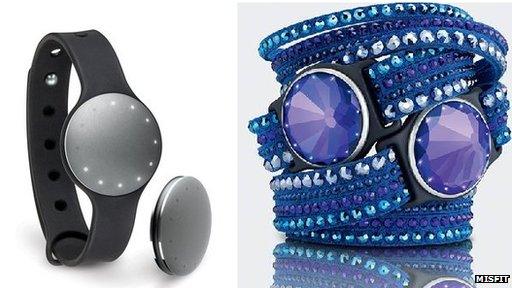
Lara tested the basic version of the Misfit Shine, but there is a solar-powered version featuring a Swarovski crystal
Well, Misfit's medical director Matthew Diamond explains it's not an exact science.
"Variations in algorithms, the sensors used, the characteristics of the individual wearing the device, like height and gait, as well as wearing position, can result in observed differences," he says.
That's not dissimilar to Mr Jones's view - he puts inaccuracies down in part to the lack of a standardised algorithm.
Yet it is acknowledged that trackers that incorporate heart-rate monitoring sensors offer better calorie burn accuracy, which could be interpreted as a nod to the fact they need to.
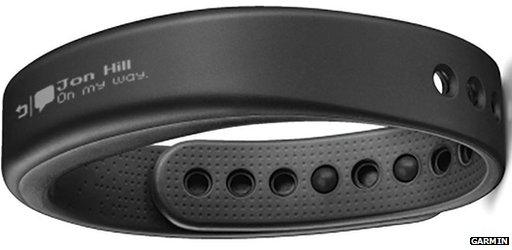
The Garmin Vivosmart can also display notifications about emails, calls and calendar reminders
"Garmin's activity trackers are all about motivation, nudging the user to make healthier choices," says Chrissy Winchcombe, Garmin's marketing executive of wellness.
"You can also use it with a heart-rate monitor for more accurate calorie counting when exercising."
Internet of me
Right now it feels as though a new device is launched weekly, some with looks to replicate mere watches. Others, like the Swarovski crystal, solar-powered Misfit - tracking abilities aside - would put J-Lo's bling to shame.

All four devices can be worn on the wrist - the Misfit Shine and Jawbone Move Up can also be attached to a belt or other clothing
But providing stats and prompting "do more exercise" notifications are just the start of their makers' ambitions.
"With wearables and looking at the Jawbone band, you know so much about the individual that you can actually start using that information to make the internet of things more like the internet of you," says Jawbone's Jorgen Nordin.
"For example, you've been out running, you come home. Your house knows you've been running, not just because of the temperature of your skin, but it also knows you've been sweating based on sensors.
"Based on that information your stereo system could be playing some cool jazz to cool you down. Your Nest thermostat can cool down the house to help you get cooler.
"If you're in a house with a boiler connected to your shower, that could be turned on as you walk into your house."
Mr Nordin has connected his Jawbone UP to turn his coffee machine on as soon as he wakes.
For most of us though, the simple question now is more likely to be: "Is it still worth me wearing an activity tracker then?"
Sensors are still improving, and as we've seen, we can't expect military precision, but this is a personal choice.
Will I be laying mine to rest? No chance.
It makes me think more about my activity. It makes me walk instead of getting the bus.
Fitness tracking company Jawbone has a system that lets businesses monitor the activity data of their employees.
It makes me feel smug at the end of the day (usually).
My husband I can compete over footsteps - don't worry, we have the same device.
And now, maybe I'll work that extra bit harder just in case it's going easy on me.
- Published27 January 2015
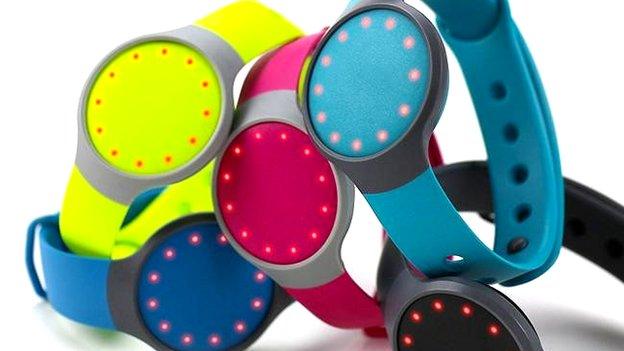
- Published16 January 2015
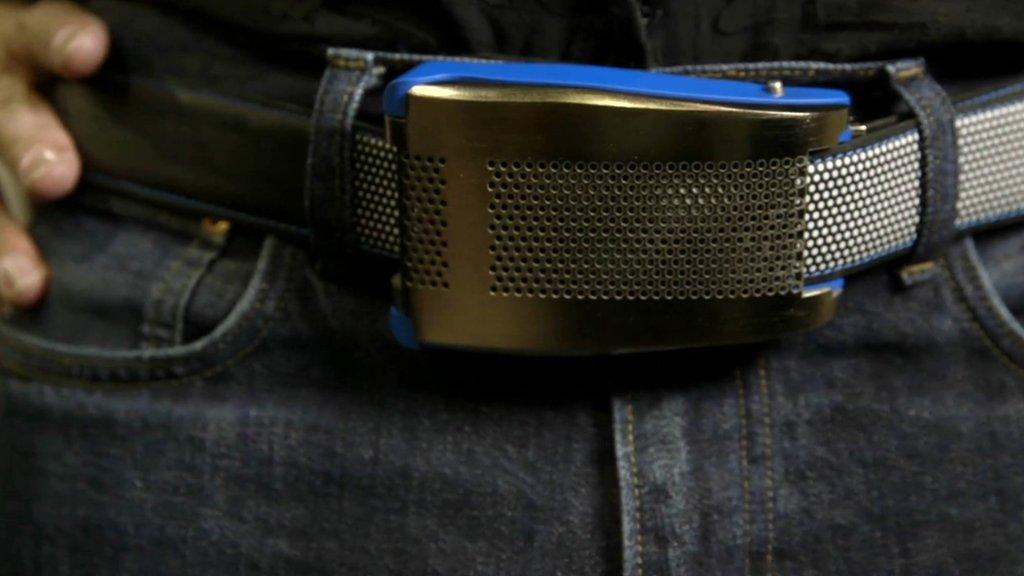
- Published5 January 2015
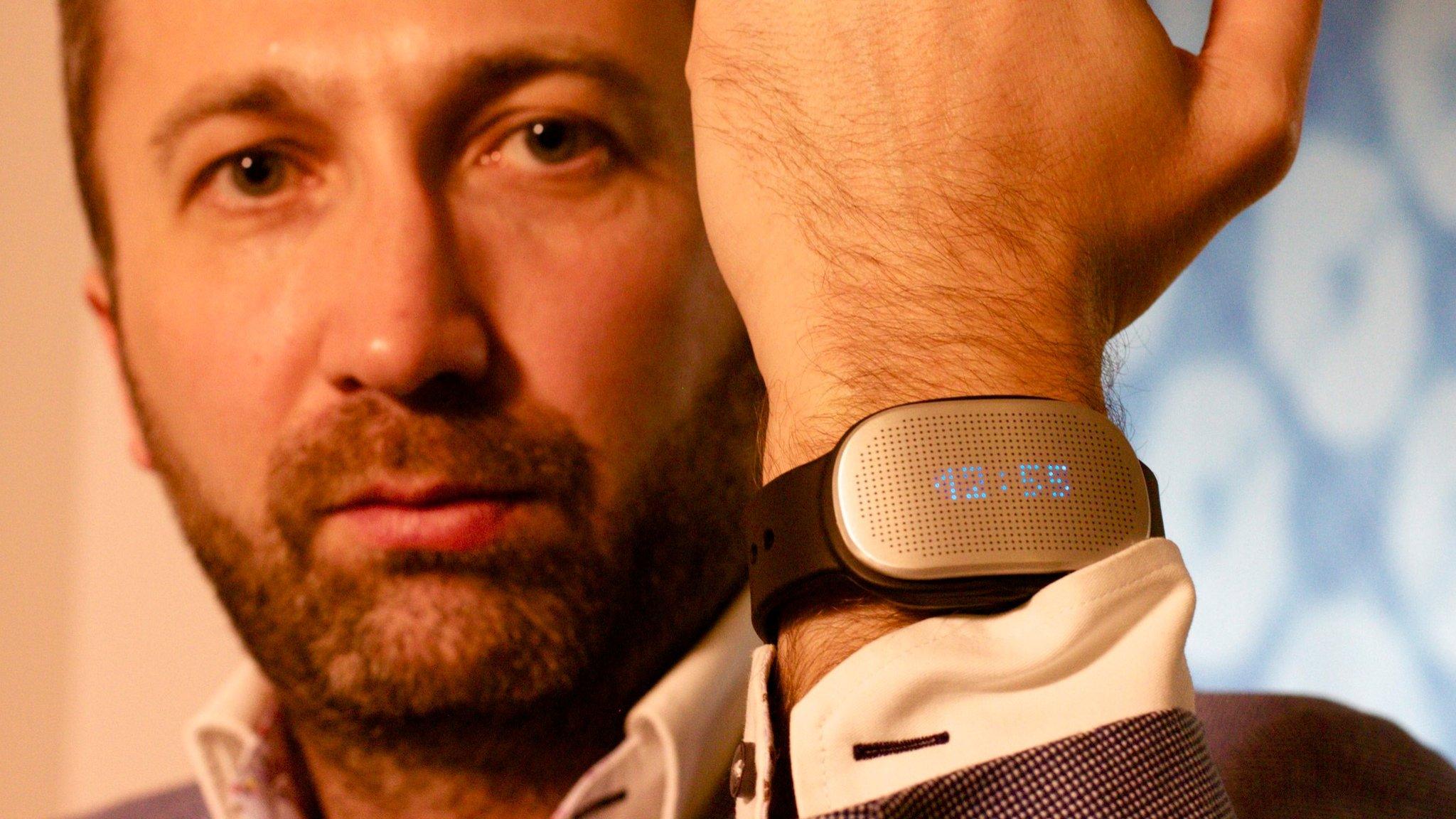
- Published7 January 2015
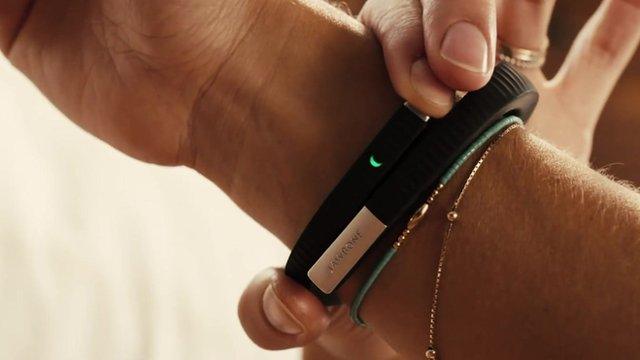
- Published5 November 2014
